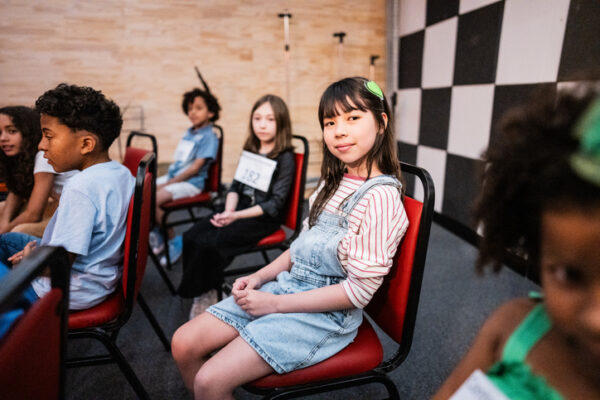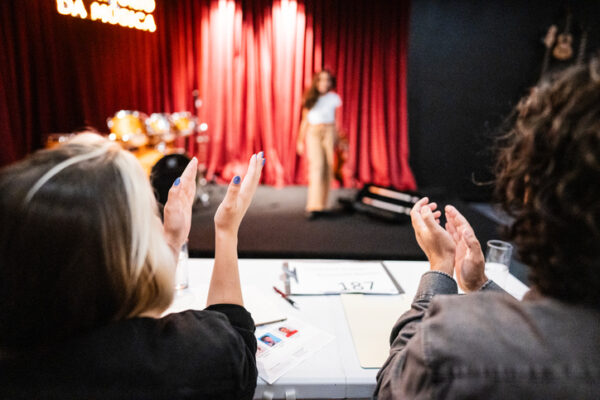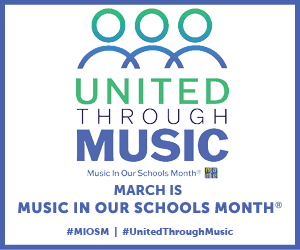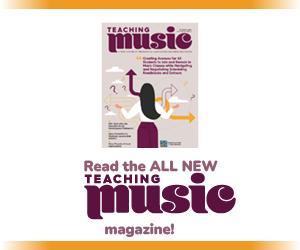NAfME BLOG
Embracing Diversity, Equity, Inclusion, and Access (DEIA) in the Audition Process
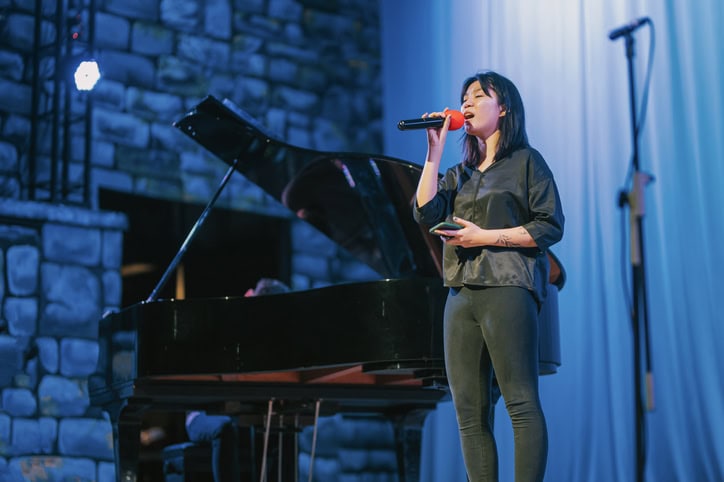
/ News Posts / Embracing Diversity, Equity, Inclusion, and Access (DEIA) in the Audition Process
Embracing Diversity, Equity, Inclusion, and Access (DEIA) in the Audition Process
Part Three of a Four-Part Series
By NAfME Member Roque Diaz, Member of the NAfME Equity Committee
Read parts one, two, and four.
As we strive for progress and inclusivity in music education, it is crucial that we create audition processes that prioritize equity and provide opportunities for historically underrecognized, excluded, and marginalized individuals. By embracing DEIA and balancing representation, we can enrich our musical ensembles.
Here are some key considerations to foster a more inclusive audition process:
- Expand Outreach and Engagement Efforts: To ensure a varied pool of talent, it is essential to actively reach out to communities that have been historically underrecognized. Collaborate with community organizations, schools, and outreach programs to connect with individuals who may not have had access or awareness to audition opportunities. By cultivating our networks, we can uncover talents and perspectives.
- Reevaluate Audition Requirements: Traditional audition requirements may unintentionally or intentionally exclude certain individuals or perpetuate biases. Consider revising audition criteria to align with the organization’s/institution’s mission, values, and other DEIA areas to establish a sense of belonging. This allows for a more inclusive evaluation process.
- Balanced Representation in Audition Panels: The composition of audition panels plays a vital role in ensuring equitable representation. By intentionally and actively seeking out panelists from different ethnicities, genders, abilities, and cultural backgrounds, we can minimize unconscious biases and provide a more balanced evaluation.
- Foster Inclusive Spaces: Create an environment where performers feel safe and comfortable to express themselves. Encourage open dialogue, actively listen to concerns, and address any instances of discrimination or bias promptly. By fostering a supportive atmosphere, we can empower performers from historically underrecognized, excluded, or marginalized communities to shine and thrive.
- Provide Mentorship and Development: Recognize that historically underrecognized, excluded, or marginalized individuals may face unique challenges due to systemic barriers. Offer mentorship programs and development opportunities to help them navigate the industry successfully. By investing in their growth, we can foster a more inclusive and equitable music education community.
- Regularly Evaluate and Adapt: Embracing DEIA is an ongoing journey. Regularly assess your audition process, seek feedback from participants and other stakeholders to make necessary adjustments to address any shortcomings. Continuously learning and evolving will help create a more inclusive and representative performing arts landscape.
Let’s commit ourselves to creating audition processes that celebrate DEIA, promote inclusivity, and provide opportunities for those who have been historically underrecognized, excluded, and marginalized.
Respectfully,
![]()
About the author:
 Dr. Roque Diaz is a seasoned executive leader with over two decades of experience in education, arts administration, and diversity, equity, and inclusion (DEI) strategy. A first-generation, neurodivergent Puerto Rican, Dr. Diaz brings a deeply personal and systemic approach to advancing equity across sectors.
Dr. Roque Diaz is a seasoned executive leader with over two decades of experience in education, arts administration, and diversity, equity, and inclusion (DEI) strategy. A first-generation, neurodivergent Puerto Rican, Dr. Diaz brings a deeply personal and systemic approach to advancing equity across sectors.
He previously served as the Senior Director of DEI at MacPhail Center for Music, where he led the organization’s equity strategy, integrated DEI into a $25M capital campaign, and secured the largest grant in the institution’s history. He also launched innovative statewide education programs and built partnerships that expanded access to high-quality music education for historically underserved communities.
Dr. Diaz is the Founder of Progressing Forward, LLC, a consulting firm dedicated to inclusive systems change, strategic planning, and capacity building across nonprofits, schools, and arts organizations. His work helps institutions move from transactional DEI efforts to sustainable, equity-driven impact.
A professionally trained trumpeter, Dr. Diaz has performed internationally in orchestral, chamber, jazz, and Latin music settings. His leadership is shaped by a commitment to ensuring that future generations experience more inclusive and culturally responsive environments.
He currently serves on several nonprofit boards and advisory groups focused on arts, education, and social justice, bringing expertise in governance, strategic planning, fundraising, and inclusive leadership.
Interested in reprinting this article? Please review the reprint guidelines.
The National Association for Music Education (NAfME) provides a number of forums for the sharing of information and opinion, including blogs and postings on our website, articles and columns in our magazines and journals, and postings to our Amplify member portal. Unless specifically noted, the views expressed in these media do not necessarily represent the policy or views of the Association, its officers, or its employees.
Published Date
August 7, 2025
Category
- Class
- Diversity, Equity, Inclusion, and Access (DEIA)
- Gender
- Race
- Representation
- Social Economic Status
Copyright
August 7, 2025. © National Association for Music Education (NAfME.org)
